Wild Things
The weird and wonderful in the natural world
Sign up for our newsletter
We summarize the week's scientific breakthroughs every Thursday.
-
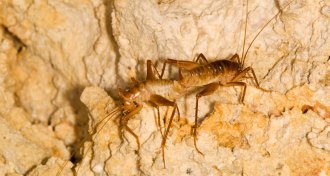 Animals
AnimalsUnknown species hide among Texas cave crickets
A study of population structure among a genus of cave crickets reveals that new species are waiting to be discovered.
-
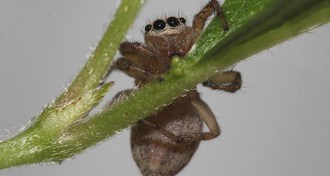 Animals
AnimalsSpider diet goes way beyond insects
Veggie-eating spiders have been found on every continent except Antarctica, a new study notes.
-
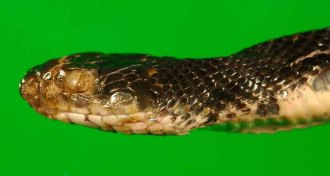 Animals
AnimalsSnake fungal disease spreading in eastern United States
A decade after snake fungal disease was first discovered, it has now been found in its 16th U.S. state.
-
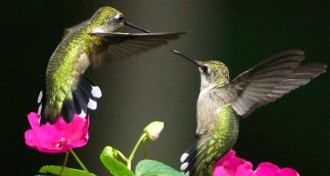 Animals
AnimalsTiny hummingbirds can fly a long, long way
Some ruby-throated hummingbirds may be capable of flying more than 2,000 kilometers without stopping, scientists calculate.
-
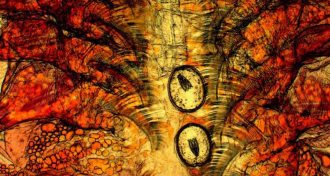 Animals
AnimalsParasites help brine shrimp survive toxic waters
When brine shrimp are infected with tapeworms, the tiny aquatic organisms survive better in warm waters and in those laced with toxic arsenic.
-
 Animals
AnimalsHow killing wolves to protect livestock may backfire
Lone wolves are more likely to prey on goats and other livestock than are wolves living in packs, a new study finds.
-
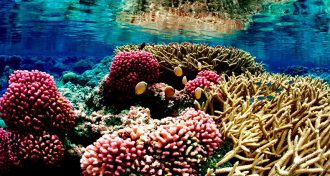 Oceans
OceansProtected coral reefs may not be the ones that need protection
A new study finds that more than half of the world’s coral reefs site within a half-hour of a human settlement. But those that are protected tend to be far away.
-
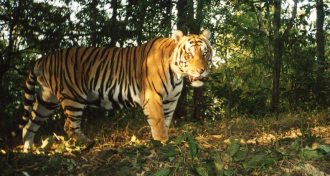 Animals
AnimalsTiger protection in Thailand produces results
Despite good efforts, the goal of doubling the global tiger population by 2022 looks impossible.
-
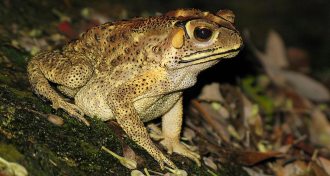 Animals
AnimalsInvasive toads will probably overrun Madagascar
A new report finds that eradicating invasive Asian toads before they overtake all of Madagascar is “not currently feasible.”
-
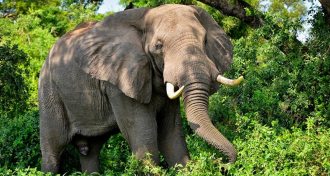 Animals
AnimalsWithout a ban on trade in old ivory, elephant killing continues
Samuel Wasser has been working to track down where poached ivory comes from. But to stop the killing, he says, a ban on the ivory trade is necessary.
-
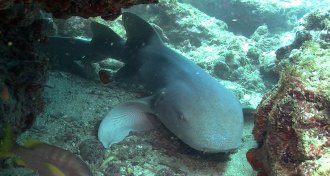 Animals
AnimalsSlow-moving nurse sharks have a metabolism to match
The nurse shark has the slowest metabolism of any shark measured so far, a new study finds.
-
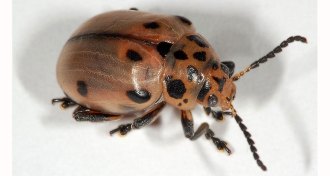 Animals
AnimalsAfrica’s poison arrow beetles are key in traditional hunting method
In the Kalahari of Namibia, some San people still hunt with a traditional method — arrows laced with poison taken from beetle larvae.